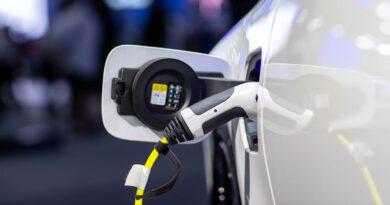Direct-to-mobile satellite will change the game: Vodacom
Vodacom Group is experimenting with different forms of satellite connectivity but thinks direct to mobile will be the most disruptive.
Chief technology officer Dejan Kastelic, speaking at a Q&A event in Cape Town this week, said direct-to-mobile satellite connectivity is going to be a “game-changer” for promoting cellular phone coverage to rural communities in South Africa and the rest of the continent.
“With partnerships between Vodacom and the satellite providers, we can provide 100% coverage. So, satellite can play a big role in the transformation of Africa because we still have a lot of areas that are unconnected,” said Kastelic.
“But low-Earth-orbit (LEO) satellite broadband connectivity is out of reach for many people in rural areas because the equipment is so expensive. There is a race going on now … to see who will be first to provide direct-to-mobile connectivity. People will use the same device they use every day to connect via satellite – it will be a game-changer,” he said.
Vodacom is no newcomer to using satellite technology to expand its coverage. Geostationary (GEO) satellites, which hover at around 35 000km above the Earth’s surface, are used by the operator to connect users in outlying areas to the core network. “With GEO, the signal has to travel very far – that requires a lot of power, so the costs high,” said Kastelic.
Driving down the costs of operating satellite-based mobile services is one of the major motivators behind Vodacom’s foray into LEO satellite solutions. This has led to a partnership with Amazon.com-owned Project Kuiper and with AST SpaceMobile, in which Vodacom parent Vodafone Group holds a 5% stake. Unlike Kuiper, AST SpaceMobile is betting on direct to mobile instead.
Decline in costs
“We have seen in the last few years that the cost of deploying a satellite constellation has dropped dramatically,” said Chris van den Bergh, managing executive for technology strategy, architecture, spectrum and assurance at Vodacom Group. This decline in costs is good news for consumers, who will not want to be charged extra for either being from or travelling to a remote region.
A likely area of contention will be how radio frequency spectrum for direct-to-mobile services is allocated, and who will be allowed to purchase access. “The signal will have to operate at frequencies that mobile phones can interpret,” said Van den Bergh.
Read: AST SpaceMobile takes first step towards global 5G access
However, if satellite providers are able to secure their own spectrum, they might not need to partner with mobile operators and could opt to compete with them instead.
“These are complementary services; Vodacom does not want to launch satellites into space and the satellite guys are not looking to get mobile licences or spectrum,” said Kastelic. He did, however, admit that spectrum allocation could become a minefield.
 “Regulators must look at who is investing in their country by building infrastructure and providing employment to decide on who gets the spectrum. My expectation would be that the regulators support partnerships through the local operators, which are supporting the economy on the ground, doing the actual investment, supporting the jobs in the country they operate in, and paying the taxes,” said Kastelic. – © 2023 NewsCentral Media
“Regulators must look at who is investing in their country by building infrastructure and providing employment to decide on who gets the spectrum. My expectation would be that the regulators support partnerships through the local operators, which are supporting the economy on the ground, doing the actual investment, supporting the jobs in the country they operate in, and paying the taxes,” said Kastelic. – © 2023 NewsCentral Media
Get breaking news alerts from TechCentral on WhatsApp
Source: techcentral.co.za



